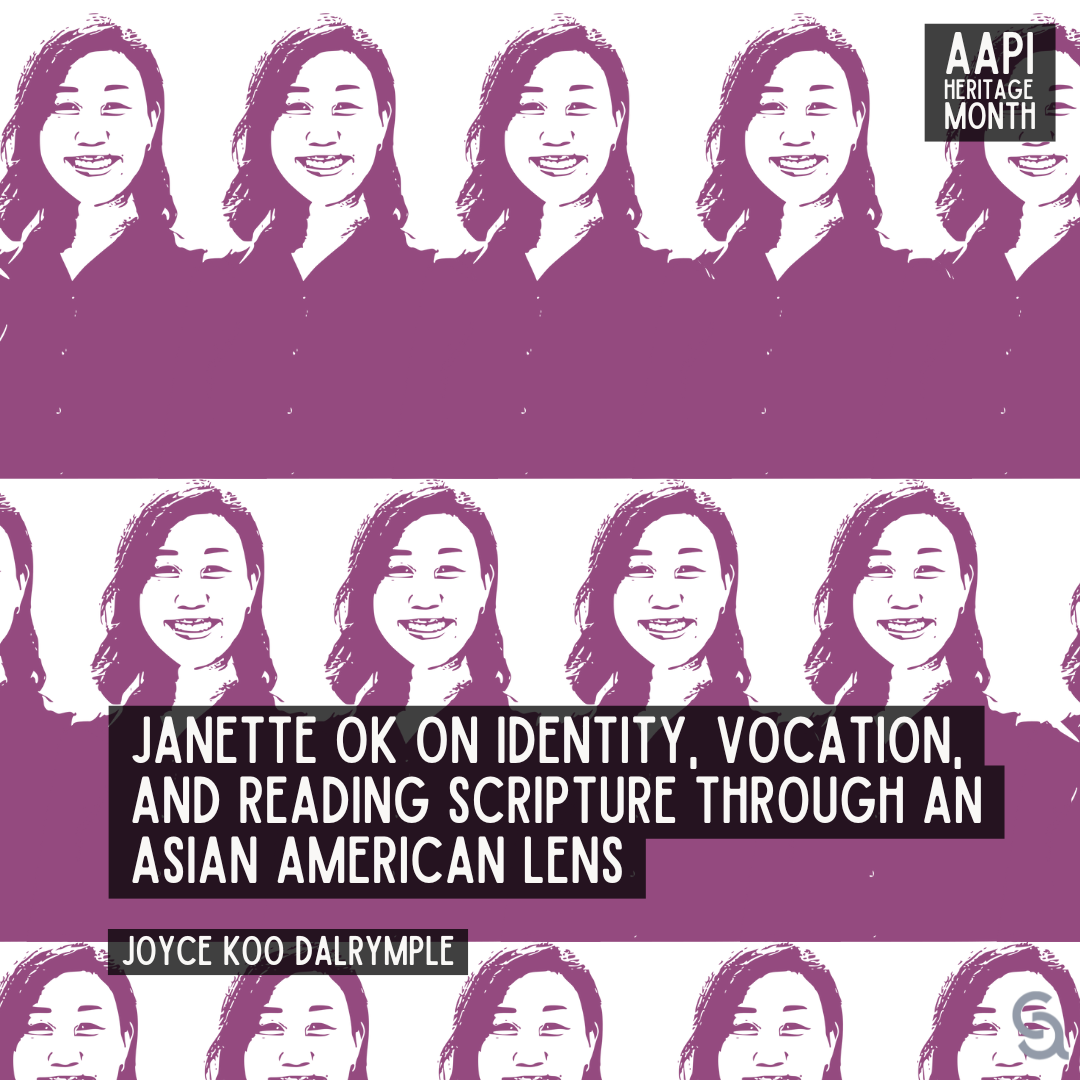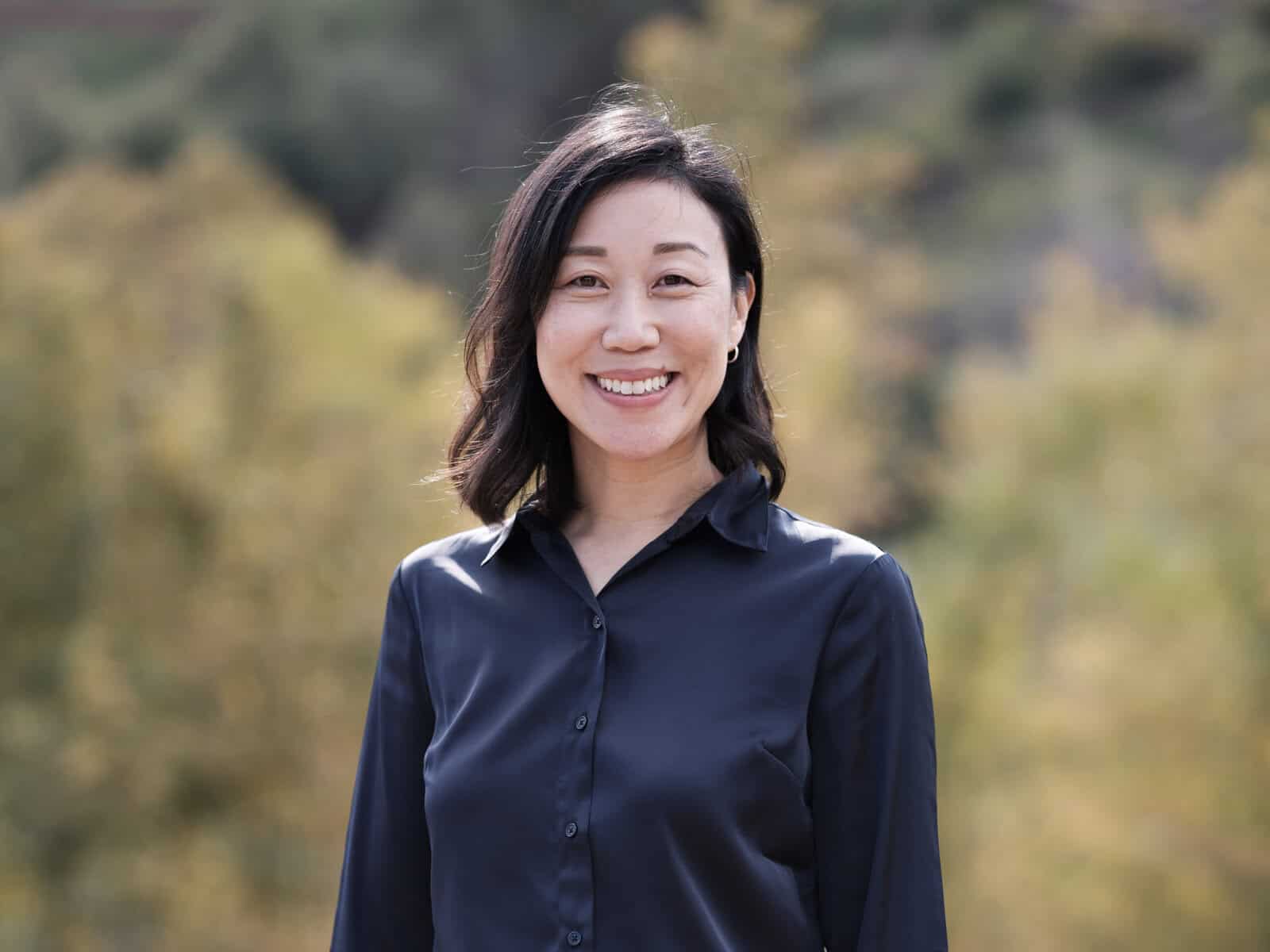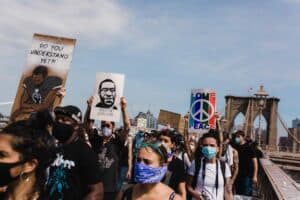 Editor’s note: May is AAPI Heritage Month, formally known as Asian American, Native Hawaiian, and Pacific Islander Heritage Month. Throughout this month, we’re featuring Q&As with some of today’s leading thinkers and activists in a series we call “Asian Americans You Should Know.” This series was curated by pastor and author Joyce Koo Dalrymple. You can read about Dr. May Young here, Dr. Gabriel Catanus here, and Dr. Jerry Hwang here. In our last interview, we sit down with Dr. Janette H. Ok, a New Testament scholar and ordained pastor whose work explores early Christian identity, intersectional theology, and the complex realities of Asian American life. See her full bio below.
Editor’s note: May is AAPI Heritage Month, formally known as Asian American, Native Hawaiian, and Pacific Islander Heritage Month. Throughout this month, we’re featuring Q&As with some of today’s leading thinkers and activists in a series we call “Asian Americans You Should Know.” This series was curated by pastor and author Joyce Koo Dalrymple. You can read about Dr. May Young here, Dr. Gabriel Catanus here, and Dr. Jerry Hwang here. In our last interview, we sit down with Dr. Janette H. Ok, a New Testament scholar and ordained pastor whose work explores early Christian identity, intersectional theology, and the complex realities of Asian American life. See her full bio below.
Joyce Koo Dalrymple: Was there anything in your experience as an Asian American that drew you to your area of research?
Dr. Ok: As a Korean American woman called to both pastoral ministry and academia, I never felt fully at home in the dominant culture—or even in some of the spaces that were supposed to form and support me. Those early experiences shaped the questions I bring to Scripture: questions of identity, belonging, and what it means to become.
When I began studying 1 Peter—originally focusing on suffering—I found myself drawn instead to its emphasis on identity formation. The letter speaks not only of who Christians are in Christ, but also of how they come to embody that new identity, even in the face of hostility and exclusion. The author knows that for many of his Gentile readers, returning to their former lives is tempting. But he encourages them to embrace a new, countercultural group identity grounded in hope and sustained by community.
In another chapter I wrote—on vocation, in Intersecting Realities—I wrestled with the intergenerational tensions that shaped my own sense of calling. My desire to pursue ministry and a PhD was met with confusion and resistance from people I loved. That friction pushed me to pursue discernment in community, and to frame vocation not as an individual journey, but as something deeply relational. I’ve learned that tension isn’t always bad—it can be the very thing that leads us into clarity, conviction, and communion.
Dalrymple: In seminary, I didn’t read any books by Asian theologians. Why is it important to have Asian or Asian American theologians?
Dr. Ok: That’s part of why I do what I do. We need Asian American theologians and biblical scholars—not as a diversity checkbox, but because the church is richer and more faithful when all voices are heard.
As I wrote in The New Testament in Color, Asian American biblical interpretation reflects a wide range of histories and identities that matter to God. These perspectives don’t just add something to Scripture—they help us all read it more fully.
My life’s work includes promoting these voices, creating space for their witness in both the academy and the church, and contributing my own voice to that growing conversation.
Dalrymple: What are you working on now? What can people look forward to from you?
Dr. Ok: I’m currently working on two major projects. The first is a commentary on the Letters of John for Eerdmans. My hope is that it will help students, pastors, and scholars hear these texts in fresh and faithful ways—bringing clarity and warmth to letters that are often overlooked.
The second is a book I’m coauthoring with Jordan J. Cruz Ryan called To Be and Be Seen: Reading the New Testament as Asian Americans (forthcoming from Baker Academic). We draw on theology, psychology, pop culture, ethnography, and history to offer decolonized readings of the New Testament rooted in Asian American experience. Throughout the book, we explore why the Asian American church matters—and how Asian American Christians can take up meaningful space in the Church and society.
Dalrymple: What should non-Asian people know about the experience of Asian American theologians?
Dr. Ok: First, Asian American identity isn’t a monolith. We’re incredibly diverse—and so is Asian American theology. There’s no one method, no single perspective that defines us.
That said, many of us share common experiences of being racialized, excluded, and treated as perpetual outsiders in American life. The term “Asian American” itself emerged as a coalition identity rooted in the fight for racial justice and full inclusion.
So Asian American biblical interpretation is not simply done by being Asian—it’s a deliberate, communal, justice-oriented task. We read with and for those who’ve been marginalized. We help bridge today’s struggles with the world of Scripture. And we equip people—especially Asian American students and leaders—to think theologically and interpret the Bible in ways that speak to their lives.
Dalrymple: Today, many Asian Americans are leading evangelical institutions—NAE, InterVarsity, The Gospel Coalition, Bread for the World, Lausanne. What do you think Asian Americans are contributing in this moment?
Dr. Ok: I believe Asian American leaders have a unique ability to hold complexity without retreating into easy answers. We’ve had to navigate tension—between cultures, generations, institutions, and even within ourselves. That can foster a kind of leadership that’s humble, relational, and wise.
Our witness is shaped by Jesus, rooted in community, and oriented toward justice. We can serve as bridge-builders in a fractured church—people who are committed to Scripture, shaped by ethical practice, and able to stay in deep relationship with those who are different from us.
 Janette H. Ok is Associate Professor of New Testament at Fuller Seminary and an ordained pastor at Ekko Church in Anaheim, California. Her scholarship focuses on the Catholic Epistles, early Christian identity, and Asian American biblical interpretation. She is the author of Constructing Ethnic Identity in 1 Peter: Who You Are No Longer (Eerdmans, 2021) and coeditor of The New Testament in Color: A Multiethnic Bible Commentary (2024). Her current projects include a commentary on 1–3 John and a forthcoming book, To Be and Be Seen: Reading the New Testament as Asian Americans.
Janette H. Ok is Associate Professor of New Testament at Fuller Seminary and an ordained pastor at Ekko Church in Anaheim, California. Her scholarship focuses on the Catholic Epistles, early Christian identity, and Asian American biblical interpretation. She is the author of Constructing Ethnic Identity in 1 Peter: Who You Are No Longer (Eerdmans, 2021) and coeditor of The New Testament in Color: A Multiethnic Bible Commentary (2024). Her current projects include a commentary on 1–3 John and a forthcoming book, To Be and Be Seen: Reading the New Testament as Asian Americans.


